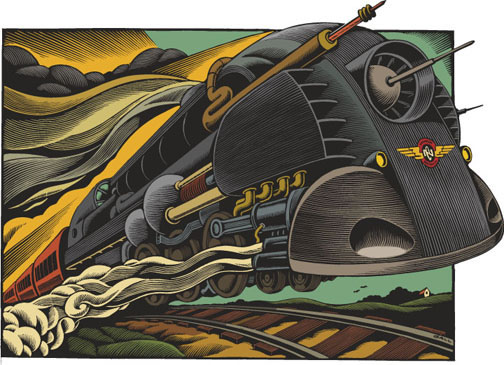
Sci-fi author China Mieville (Perdido Street Station, Iron Council, The City & The City) offers up his personal list of the 50 Sci-Fi and Fantasy Works Every Socialist Should Read, including Octavia Butler, Charlotte Perkins Gilman, Edward Bellamy, Iain Banks, Kim Stanley Robinson, and Mervyn Peake. “Ayn Rand—Atlas Shrugged (1957): Know your enemy. This panoply of portentous Nietzcheanism lite has had a huge influence on American SF. Rand was an obsessive ‘objectivist’ (libertarian pro-capitalist individualist) whose hatred of socialism and any form of ‘collectivism’ is visible in this important and influential – though vile and ponderous – novel.”
As y’all already know, I’m not a socialist — I’m a civic progressive. But I have more admiration for the old Party of Debs than I do, say, today’s New Dems. Also, the Iron Council-ish train above is by Arizona-based illustrator Chris Gall, whose colorful, social realist-inspired drawings and engravings are worth perusing.
